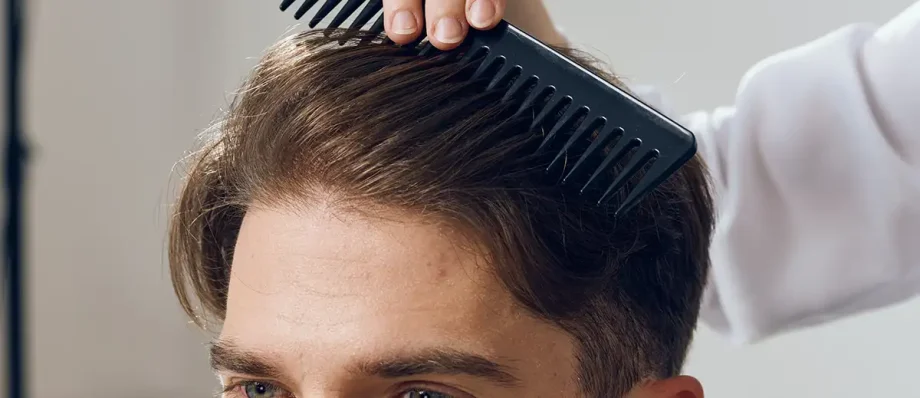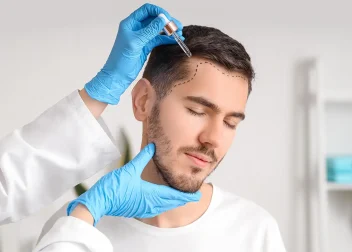Hair Transplant in Istanbul
Is Istanbul good for hair transplant?
Istanbul is well-known for being a popular destination for hair transplant surgery. Istanbul boasts many clinics that specialize in hair transplant procedures, many of which are equipped with the latest technology and staffed by experienced surgeons.
Compared to many countries, hair transplant in Istanbul can be significantly more affordable without compromising on quality. Many Turkish surgeons have a great deal of experience and high success rates with hair transplants, given the high volume of operations performed in the city. Patients often combine their medical treatment with the opportunity to tour Istanbul, a city rich in history, culture, and gastronomy.
However, it’s important to thoroughly research and select a reputable clinic. Checking reviews, verifying the credentials of the surgeons, and understanding the pre- and post-operative care provided by the clinic can help ensure a safe and successful experience.
Why do people choose Istanbul for hair transplant?
When it comes to undergoing a hair transplant, selecting the right destination is as crucial as choosing the best surgeon. Over the past decade, Istanbul has appeared as a global hotspot for hair transplant surgeries, attracting thousands of international patients each year.
Istanbul is home to some of the world’s leading hair transplant clinics. These facilities are equipped with cutting-edge technology and adhere to international standards of medical care. The use of advanced techniques like FUE and DHI ensures high success rates and minimal discomfort for patients.
The sheer volume of hair transplant operations performed in Istanbul has resulted in a pool of highly skilled and experienced surgeons. Many of these specialists have dedicated their careers to perfecting the art of hair restoration, boasting impressive portfolios that showcase their expertise and success.
One of the most compelling reasons people flock to Istanbul for hair transplants is the cost. The procedures in Istanbul are often significantly more affordable than in Europe or America, without sacrificing quality. This affordability is coupled with comprehensive packages that often include accommodation, airport transfers, and sometimes even post-operative care services.
Turkey’s medical tourism industry is well-regulated, which reassures international patients of the quality and safety standards. Clinics are regularly inspected, and many hold prestigious international accreditations that affirm their commitment to excellence in medical care.
Istanbul is not just a medical destination; it is also one of the world’s most enchanting cities, rich with history, culture, and cuisine. Many patients choose to turn their trip for a medical procedure into a mini vacation, enjoying Istanbul’s famous landmarks like the Hagia Sophia, the Blue Mosque, and the bustling Grand Bazaar, etc.
The abundance of positive reviews and testimonials from earlier patients adds an extra layer of trust and confidence for new patients. Success stories shared across various platforms highlight the positive experiences and outcomes that others have had, which plays a crucial role in the decision-making process.
Hair transplant in Turkey is not just about affordability; it’s about quality, experience, and the added benefit of experiencing a city that straddles two continents. However, you should conduct thorough research and select a reputable clinic to ensure that you receive the best possible care. With the right preparation, undergoing a hair transplant in Istanbul can be a transformative experience that goes beyond just the aesthetic benefits.
Should I go to Istanbul for a hair transplant operation?
Istanbul offers a compelling blend of top-tier medical ability at prices often much lower than other countries. The hair transplant cost advantage does not come at the expense of quality; many Turkish clinics offer ultramodern facilities and use the latest techniques in hair restoration. However, affordability shouldn’t be the sole factor in your decision. You should balance cost with the quality of care.
The city’s popularity as a hub for hair transplants means that many surgeons in Istanbul have a vast amount of experience. These specialists often perform many procedures each week, giving them a level of ability not easily found elsewhere. Researching the credentials of the surgeon, reading reviews, and examining before-and-after photos are essential steps.
Many clinics in Istanbul cater specifically to international patients, offering packages that include the surgery, accommodation, airport transfers, and sometimes a host who speaks your language. This can significantly ease the logistics of traveling to a foreign country for medical reasons.
While many clinics in Istanbul meet international standards, the regulatory environment can vary, and it’s important to ensure that the clinic you choose is accredited by a reputable organization. Understanding the legal and health safety measures in place is crucial for your peace of mind and safety.
Which is the best clinic in Istanbul?
When searching for the top hair transplant clinic in Istanbul, you are not just looking for a name but rather a place that matches your specific needs, expectations, and comfort level.
The ability of the surgeons is paramount. Look for clinics where surgeons have substantial experience and hold relevant qualifications. Many top clinics in Istanbul boast specialists who are not only experienced in traditional techniques but are also pioneers in the latest hair transplant technologies. Research the clinic’s staff, ask for their credentials, and look for any international affiliations or certifications.
Patient feedback is invaluable when assessing the quality of a clinic. Look for detailed reviews that describe the entire process from consultation through to post-operative care. Pay attention to both positive and negative reviews to gauge consistency in patient satisfaction. Also, before and after photos can provide a visual testament to the quality of results.
Top clinics often offer comprehensive care packages tailored to international patients. These can include airport transfers, accommodation arrangements, multi-lingual staff, and extensive post-operative care. Such services can greatly enhance your overall experience, especially when you are navigating a medical procedure in a foreign country.
Hygiene and safety are crucial in any medical setting. A reputable clinic should follow strict sterilization and safety protocols to ensure the health and safety of its patients. During your first consultation, see the cleanliness of the facility and ask about their safety practices directly.
Who shouldn’t get a hair transplant?
Deciding to undergo a hair transplant is a significant step and, while it offers transformative results for many, it isn’t suitable for everyone. Here are some considerations to keep in mind if you’re thinking about this procedure:
Those with Insufficient Donor Hair
A successful hair transplant relies heavily on having enough healthy donor hair. People with severe baldness or thinning that extends too widely across the scalp might not have enough quality donor hair to achieve effective results.
People with Certain Medical Conditions
People suffering from health conditions that cause unstable hair loss, such as alopecia areata, might not be ideal candidates. Such conditions can lead to unpredictable hair loss, potentially undoing the results of a transplant.
Young Patients
Young people experiencing early hair loss may want to go ahead with caution. Hair loss patterns can be unpredictable and may continue after a transplant, needing further surgeries down the line. It is often recommended to stabilize hair loss medically before considering a transplant.
How many years does hair transplant last?
A hair transplant is considered a permanent solution for hair loss. The transplanted hair keeps its characteristics after being moved. This means it should continue to grow for a lifetime. It is important to note that while the transplanted hair remains, the original hair around it may continue to thin or recede due to natural hair loss processes. Regular follow-up care and possibly additional treatments might be needed to maintain the overall appearance.


